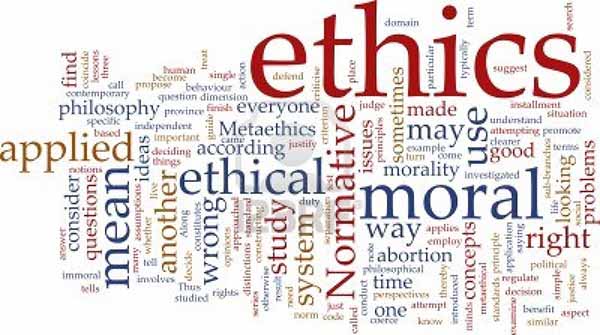A boy and a girl were playing together. The boy had a collection of marbles. The girl had some sweets with her. The boy told the girl that he will give her all his marbles in exchange for her sweets. The girl agreed. The boy kept the biggest and the most beautiful marble aside and gave the rest to the girl. The girl gave him all her sweets as she had promised. That night, the girl slept peacefully. But the boy couldn’t sleep as he kept wondering if the girl had hidden some sweets from him the way he had hidden his best marble.
Socrates believed that our morality and ethics must be the central driving force in our lives and continuously encouraged people to keep this in mind. Socrates contended that if a person strived to become virtuous, then the inevitable consequence would be that he would have no choice but to do the right thing. Socrates was a visionary: he saw that a different kind of future was possible if people reached for goodness. Imagine a world in which everyone had the attainment of goodness as their one goal, their one ambition, rather than making money. Imagine a world where all people brought their children up to be good human beings, instead of people who are preoccupied with getting ahead. Socrates had faith that this kind of existence was possible. He was also the most just because he was a fair and honest man who had the hope that there could be justice for everyone.
Kant argued that moral rules had to apply equally to all rational agents. He thought that it followed from this that some rules could be shown to be valid and others invalid. A valid rule is one that you would consistently wish that everyone would follow, and an invalid rule one that you would not consistently wish to be universalized. So Kant held that lying was morally wrong, because if everyone lied when it was to their advantage to do so, trust and communication would be undermined and your own goals would be frustrated.
Suppose a healthy man walks into a hospital where five patients are awaiting organ transplants. Is it morally acceptable to kill the man in order to harvest his organs to save the lives of five others? If you instantly answered no, you share a near-universal response to the dilemma, one offered by peoples and cultures all over the globe. But how did you reach this conclusion? Was it a rational decision learned in childhood, or was it based on instincts encoded in our brains by evolution?
Morality, to some extent, is related to nature as opposed to nurture. Moral inclinations are often evident with children who forgive quickly and forget transgressions. No one teaches a 3 year old to forgive another 3-year-old child. They have a natural moral inclination to do so. Moreover, when we are growing up we seem to know if the actions of our friends and family members are right or wrong. No one taught us not to hit our friend because they will not give us the toy we want, we innately know is not the right action. We seem to just know that it goes against nature to be violent to get your way or resolve an issue.
The idea that the moral sense is an innate part of human nature is not far-fetched. A list of human universals collected by the anthropologist Donald E. Brown includes many moral concepts and emotions, including a distinction between right and wrong; empathy; fairness; admiration of generosity; rights and obligations; proscription of murder, rape and other forms of violence; redress of wrongs; sanctions for wrongs against the community; shame; and taboos. The stirrings of morality emerge early in childhood. Toddlers spontaneously offer toys and help to others and try to comfort people they see in distress.
It is aptly said that the moral evil in the world is due to man’s alienation from the deepest truth, from the springs of spiritual life within himself, to his alienation from God. Those who realize this try desperately to persuade and enlighten their brothers. But we are in a radically different position from the first and pure creed and our Prophet, who revolutionized an essentially religious world of paganism with the message of a new religion that had never been heard of.
It is nicely said by the Buddha, “Just as a candle cannot burn without fire, men cannot live without a spiritual life.” Naturally, human beings develop a strong appetite for religion and moral values. In other words, our soul feels hunger the same as our body, and religion seems the only satiating source and one will be pacified through prayers.
John Foster Dulles states very nicely, “Economic and military power can be developed under the spur of laws and appropriations. But moral power does not derive from any act of Congress. It depends on the relations of a people to their God. It is the churches to which we must look to develop the resources for the great moral offensive that is required to make human rights secure, and to win a just and lasting peace.”

